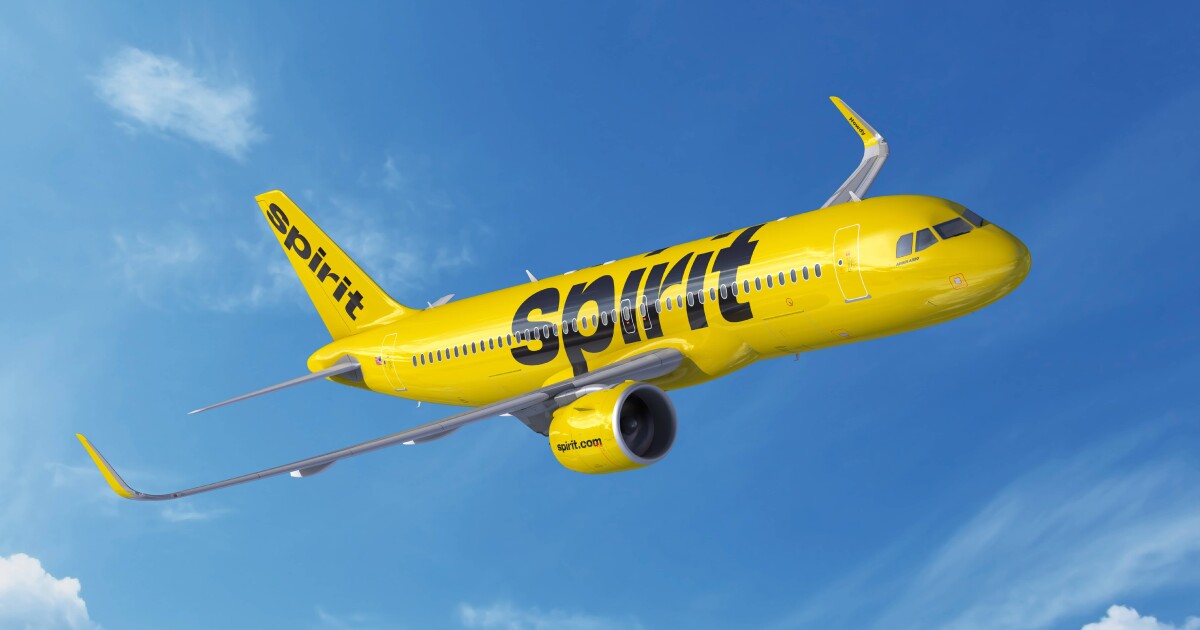Fitch: Spirit Airlines bankruptcy won’t impact airport ratings
2 min read

Spirit Airlines
Spirit Airlines’
The bankruptcy filing “is unlikely to have a material impact on U.S. airport operations, finances or ratings,” Fitch analysts wrote in the commentary published Thursday.
The Chapter 11 filing will enable the company to restructure its operations.
Fitch downgraded to D from CC on Nov. 20 the long-term issuer rating of the low-cost carrier, which primarily focuses on leisure travel and serves predominately origin and destination markets, following the airlines’ chapter 11 bankruptcy filing.
The airports Fitch highlighted in its report in Nevada, Florida and South Carolina, were singled out because Spirit has a small share of flights and passenger levels at most airports it serves. The airline serves destinations throughout the United States, Latin America and the Caribbean, according to its website.
But, it has a meaningful share of enplanements at Myrtle Beach International Airport and Fort Lauderdale-Hollywood International Airport, and a more modest share of traffic at Orlando International Airport, and Las Vegas’ Harry Reid International Airport.
Spirit makes up 37% of traffic at the Myrtle Beach airport, 29% at the Fort Lauderdale airport, 17% at the Orlando airport and 15% at the Las Vegas airport, Fitch said.
The airports are faring well financially. Airport traffic volume at Myrtle Beach, Orlando and Las Vegas has exceeded
Spirit operates a fleet of about 210 aircraft, although the airline estimated in August that Pratt & Whitney engine inspection issues would keep about 67 aircraft out of service by the end of 2025, Fitch said. Spirit recently announced it would sell 23 aircraft, or nearly 11% of its fleet, to GA Telesis, according to the rating agency.
Spirit plans to continue operating normally during the bankruptcy process, which it expects to complete in first quarter 2025.
Spirit is “likely to retain its current airline use and lease agreements with airports throughout its network, especially as liquidation is unlikely and the airline expects to exit bankruptcy protection quickly,” Fitch wrote.
If Spirit makes changes to its flight schedule, however, “service reductions may result in unused gates at some airports, until they are backfilled by other airlines,” Fitch wrote. “Airport costs could be reallocated to other airlines in the meantime under established agreements to protect airport cash flows.”
Spirit announced on Nov. 18 that it had entered into a restructuring support agreement supported by a supermajority of its loyalty and convertible bond holders on the terms of a comprehensive balance sheet restructuring.
Spirit said it has received commitments for a $350 million equity investment from existing bondholders and will complete a deleveraging transaction to equitize $795 million of funded debt.





